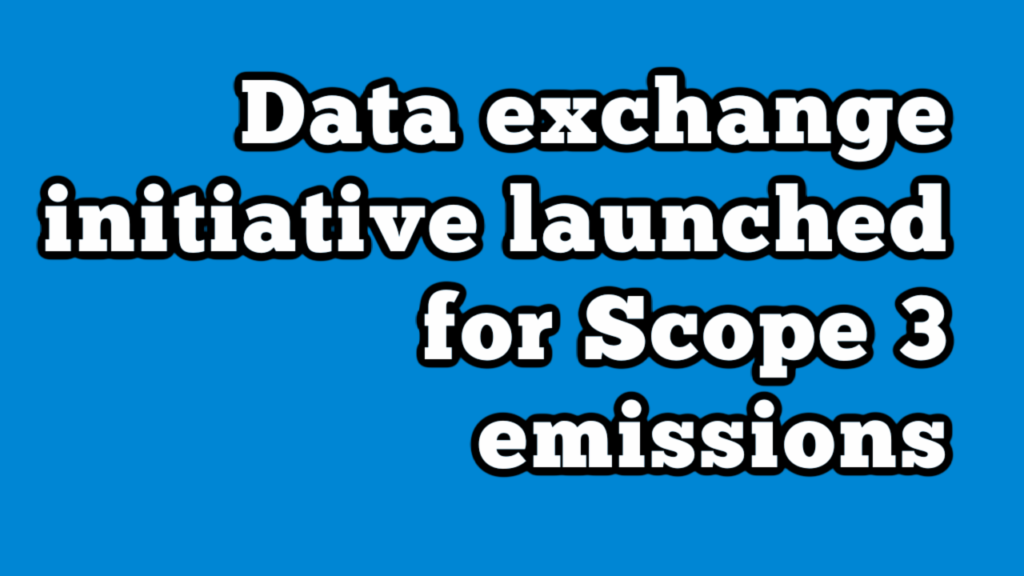Data exchange initiative launched for Scope 3 emissions

– The World Business Council for Sustainable Development launched a new “Pathfinder” initiative to share data to enable tracking of Scope 3 emissions.
– Initiative will try to standardize methodologies and product-specific data through data exchanges.
Here’s the intro from this “ESG Today” article:
The World Business Council for Sustainable Development (WBCSD) announced today the launch of the Carbon Transparency Pathfinder, an initiative aiming to enable Scope 3 emissions transparency and accelerate decarbonization through the widescale exchange of primary, carbon emissions data.
The WBCSD is a global, CEO-led organization of over 200 leading businesses, representing combined revenue of more than USD $8.5 trillion and 19 million employees, working together to accelerate the transition to a sustainable world. According to WBCSD, the new Pathfinder initiative is being introduced to help address key challenges that companies face in their decarbonization efforts, including a lack of consistent methodology to calculate and allocate GHG emissions, a lack of accurate and granular product-specific data on GHG emissions, and complex value chains with only limited inter-organizational emissions data exchange.
To address these issues, the initiative includes a comprehensive methodology and technical infrastructure for sharing granular, consistent and verified product-level data on primary emissions across value chains. The methodology will build on and improve existing emissions reporting standards to increase consistency, granularity and integration of emissions data, while the technical infrastructure will set standards for inoperability between company and industry-level solutions, enabling all businesses to advance wide-scale, consistent and safe exchange of emissions data towards achieving net zero.
And here’s a note from Professor Raz Godelnik about how companies should be trying to influence others in its supply chain and customer base:
This is a good example of what companies should pay attention to in their climate plans:
In this case, Netflix‘s carbon footprint is important, but not as nearly important as its potential impact as a powerful agent of change. I’m much more interested to see Netflix coming up with goals on climate-related content that it will create and market this decade than the reduction in its operations’ carbon footprint during this time. The former has much greater potential to make a difference in the grand scheme of things.
I hope to see Netflix embracing the role of a change agent with clear goals on what it plans to bring to the screen as part of its climate plan.
